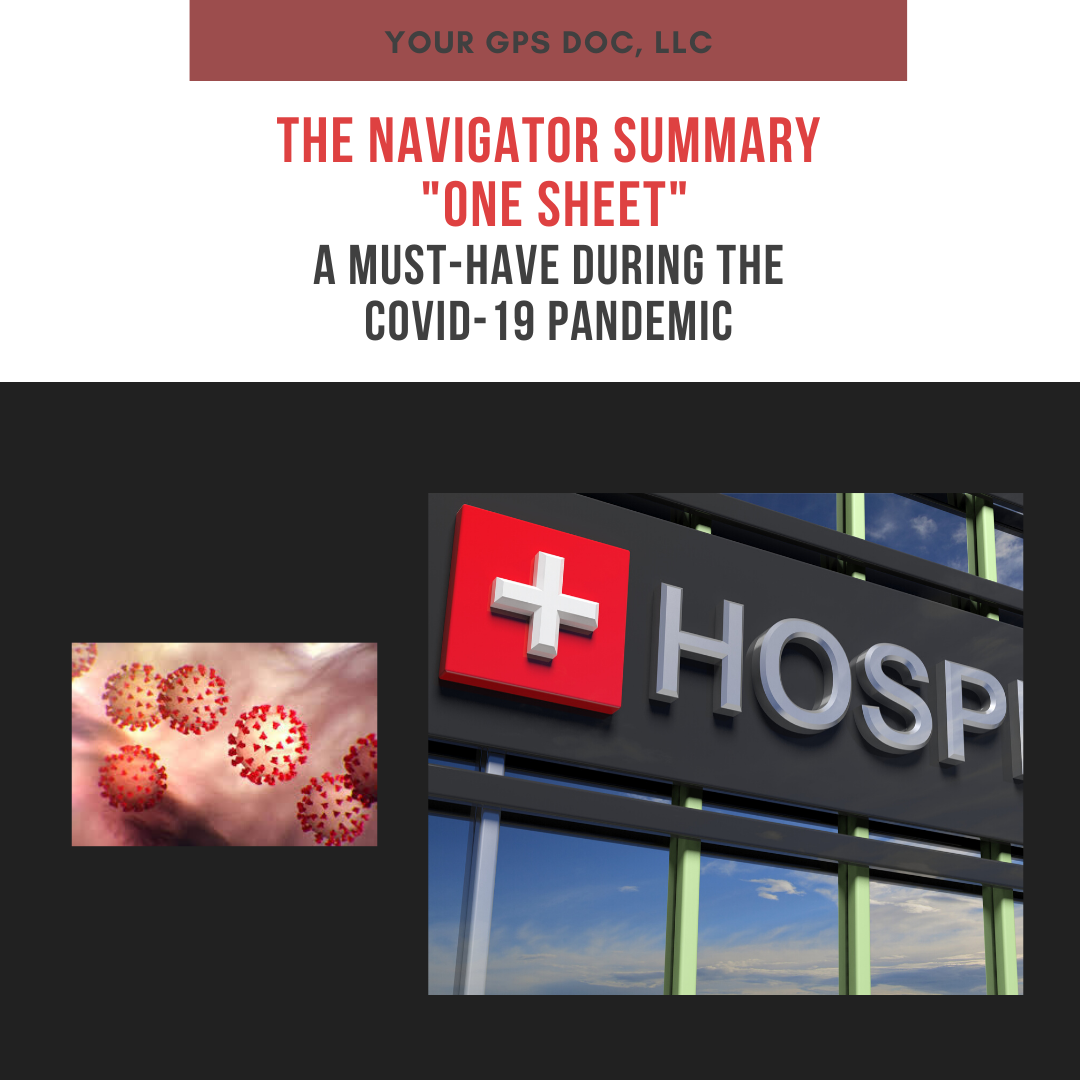My father had several chronic health conditions and was cared for by multiple physicians. In addition to his primary care physician, he saw a cardiologist for hypertension and heart disease, a nephrologist for end stage renal disease, a neurologist for dementia and unexplained weakness, and a psychiatrist for depression. When hospitalized, he was typically cared for by an entirely different group of physicians, none of whom were familiar with the details of his medical history. Add to this medical gumbo a patient who was coherent and intelligent but suffering from dementia, and you now have a recipe for disaster. I cannot count how many times my father was given new medications that interacted with medications he was already taking, or that were not the best option given his underlying medical illnesses. On one occasion, we discovered that he was taking seven medications for high blood pressure, several of which were in the same category and should not have been prescribed together. He experienced numerous side effects from his medications and I am certain this impacted his quality of life.
Medications are effective and necessary for the treatment of many acute and chronic health conditions, but they can also be very harmful. Studies show that the more medications one takes, the greater the risk for complications and unintended consequences. According to the Agency for Healthcare Research and Quality (AHRQ), Adverse Drug Events (ADEs) account for nearly 700,000 Emergency Department visits and 100,000 hospitalizations each year. Approximately half of ADEs are preventable. So, what can patients and caregivers do?
Here are six things you can do to protect yourself and your family members from medication errors.
- Carry a complete list of every medication you take (prescription, over-the-counter, herbal remedies and dietary supplements) to all healthcare visits. Click To Tweet This includes outpatient medical appointments, emergency department visits, visits to urgent care centers, and hospitalizations. Be sure to show this list to the physicians and nurses to ensure it is consistent with your medical record. Your list should include the name of the medication, the dose (typically in mg), and how you take the medication.
- Be aware of your medication allergies. Click To Tweet You should know the drug to which you are allergic and the reaction you experience (e.g. rash, hives, etc.). State this information clearly to the nurses and doctors caring for you.
- When prescribed new medications, ask a few key questions to ensure you have a clear understanding of what to expect and what to look out for. Click To Tweet Some important questions include: What is the medication for? What are the potential side effects? Will it interact with other medications you are taking? Should the medication be taken with food or on an empty stomach? Is this medication a replacement for something you are already taking? (In other words, are you to stop taking any of your other medications?) Write down the answers to these questions in a notebook so you can reference the information later, if necessary.
*Side note—physicians are generally not well-versed in medication interactions. If your doctor cannot answer some of the questions above, please ask to speak to the pharmacist when you fill the prescription. These questions are important and deserve a knowledgeable answer.
- When you pick up your prescription(s) from the pharmacy, be sure that the name and dosage of the medication you receive matches the information you were given by the treating physician. Click To TweetThere are numerous look-alike and sound-alike medications. Unfortunately, errors sometimes occur when prescriptions are filled. Read the information labels and warnings on the bottle. These are not meant to be decorative but are there to help you. Be sure to also read the information sheet that accompanies each medication.
- Take your medications exactly as prescribed. Click To Tweet Follow your physician’s instructions and those on the label. If these instructions are not congruent, call your doctor immediately for clarification. Do not skip doses. If you miss a dose, ask your doctor how to reconcile this– do you wait until the next dose is due to take the medication; do you take the missed dose when you notice the error; do you squeeze the remaining doses closer together? For medications that have a defined end point (like antibiotics), take the medication until it is finished. Do not stop taking the medicine when you begin to feel better, as this can have negative consequences.
- Keep medications in their original containers. Click To Tweet Combining different medications in pill bottles or daily pill containers can increase errors.
Click here for a free worksheet to help you keep track of your medications. You are an important member of your medical team and medication safety requires a dynamic partnership between you and your healthcare providers.








It’s a very simple task yet sometimes I mess up my medication. I had to buy weekly containers to not mix them up.
Using a weekly pill container is a great way to remain organized and to protect yourself from potential medication errors.